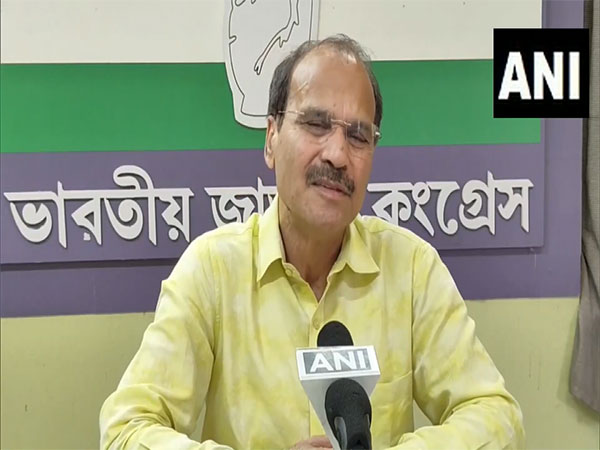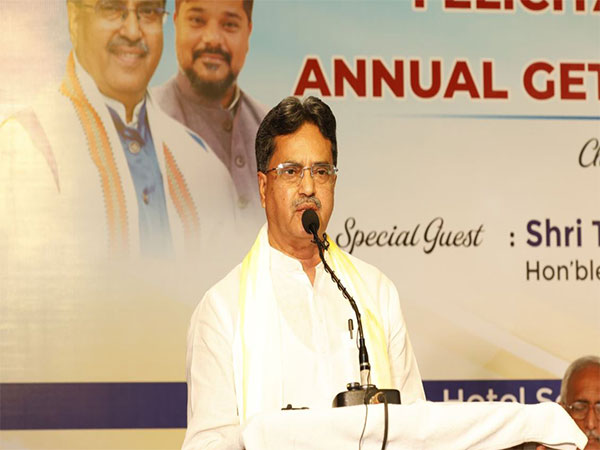Bharatiya Nyaya Sanhita Bill allows use of 'draconian police powers for political ends': Kapil Sibal
Aug 12, 2023

New Delhi [India], August 12 : Rajya Sabha MP and senior advocate Kapil Sibal on Saturday alleged that the Bharatiya Nyaya Sanhita Bill, 2023 which seeks to replace the colonial-era Indian Penal Code (IPC), allows the use of "draconian police powers for political ends".
Senior advocate Kapil Sibal further said that the government's agenda behind bringing such laws is to "silence opponents".
"Bharatiya Nyaya Sanhita (2023) (BNS)...Allows for using draconian police powers for political ends BNS...Allows for police custody from 15 upto 60 or 90 days...New offences for prosecuting persons who threaten the security of state (redefined)...Agenda: To silence opponents," Kapil Sibal said in a tweet.
"Wherever the BJP is in power, the political opponents will be attacked and police force is by and large working under the directions of the political persons in power...In this context you give police or enforcement agencies custody for 60-90 days, then it is a recipe for disaster," Sibal said.
He further said that the way sedition law changed and put into place, provisions relating to national security without defining under what circumstances a person can be prosecuted for national security.
"On one hand, they are giving more power to police and on the other hand silencing people...this is unacceptable...," Sibal said.
Earlier on Friday, Amit Shah introduced The Bharatiya Nyaya Sanhita Bill, 2023, Bharatiya Nagarik Suraksha Sanhita Bill, 2023 and Bharatiya Sakhshya Bill, 2023, aimed at giving justice and protecting the rights given to Indian citizens by Constitution.
The bills will abolish the Indian Penal Code, 1860, Criminal Procedure Code, (1898), 1973 and the Indian Evidence Act, 1872 made by the British.
"The Indian Penal Code, 1860 will be replaced by the Bharatiya Nyaya Sanhita Bill, 2023; the Criminal Procedure Code, 1898 will be replaced by the Bharatiya Nagarik Suraksha Sanhita Bill, 2023 and the Indian Evidence Act, 1872 will be replaced by the Bharatiya Sakshya Bill, 2023," Amit Shah said.
He said British-era laws were made to strengthen and protect their rule and their purpose was to punish, not to give justice.
“We (government) are going to bring changes in both these fundamental aspects. The soul of these three new laws will be to protect all the rights given by the Constitution to the Indian citizens. The objective will not be to punish anyone but give justice and in this process, punishment will be given where it is required to create a sense of prevention of crime," Shah stressed.
He said from 1860 to 2023, the criminal justice system of India continued to be operated on the basis of the laws made by the British Parliament, but now these three laws will be replaced with new laws imbibing India’s soul.
He said that in the current laws, heinous crimes like murder or crimes against women were placed very low and crimes like treason, robbery and attack on the official of the government were kept above these.
Shah said that 18 states, six Union Territories, a Supreme Court, 16 High Courts, five judicial academies, 22 Law Universities, 142 Members of Parliament, about 270 MLAs and people gave their suggestions regarding these new laws and that for four years these were discussed in depth and he himself was present in 158 meetings.
The Home Minister said that Bharatiya Nagarik Suraksha Sanhita Bill, which will replace CrPC, will now have 533 sections. "A total of 160 sections have been changed, nine new sections have been added and nine sections have been repealed," he said.
The Bharatiya Nyaya Sanhita Bill, which will replace the IPC, will have 356 sections instead of the earlier 511 sections, the minister said, adding that 175 sections have been amended, 8 new sections have been added and 22 sections have been repealed.
Bharatiya Sakshya Bill, which will replace the Evidence Act, will now have 170 sections instead of the earlier 167. Shah said 23 sections have been changed, one new section has been added and five repealed.

















